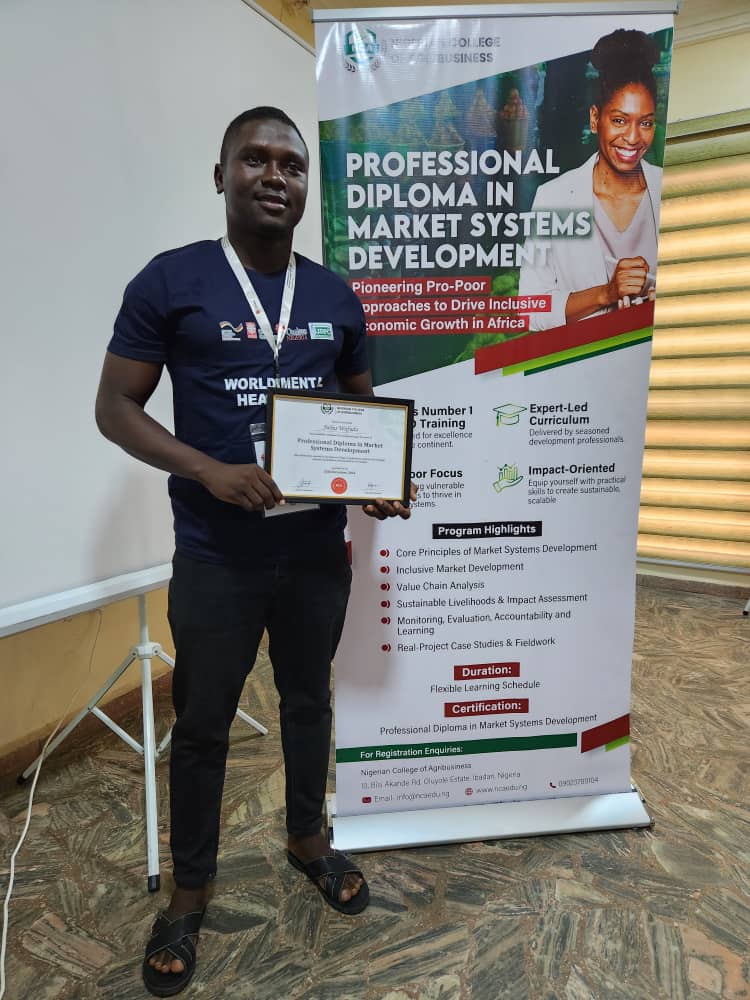Start Dates
Duration
Fees
Mode of Study
Lead Sustainable Economic Growth through Development Finance
Development finance is the cornerstone of sustainable economic development, particularly in emerging economies like those in Africa. It offers solutions to bridging the financial gaps in critical sectors such as agriculture, infrastructure, healthcare, education, and small and medium-sized enterprises (SMEs). The Professional Diploma in Development Finance is designed to equip you with the financial tools, knowledge, and practical strategies to drive inclusive economic growth, alleviate poverty, and foster sustainable development.
This diploma will prepare you to address the complex financial needs of underserved communities and sectors, harnessing innovative financial instruments such as impact investing, microfinance, and blended finance to unlock opportunities for sustainable development. By mastering the principles and practices of development finance, you will be positioned to influence policy, design effective financial products, and implement programs that improve livelihoods and enhance socioeconomic outcomes.

Gain in-depth knowledge of the financial instruments, models, and strategies used to promote inclusive economic growth.
Learn how to apply financial tools to address challenges in sectors like agriculture, education, healthcare, and infrastructure, improving livelihoods and economic resilience.
Lead the charge in leveraging finance to reduce poverty, close inequality gaps, and foster sustainable, long-term development.
Foundations of Development Finance
This introductory module lays the foundation for understanding the role of finance in achieving sustainable development goals (SDGs). It explores the key principles, actors, and institutions that shape development finance globally and locally, as well as the various approaches to funding projects that generate both social and economic impact.
Actionable Insights:
Financial Inclusion and Microfinance
Financial inclusion is critical to enabling individuals and SMEs in underserved regions to access capital, build businesses, and escape poverty. This module focuses on the design and implementation of microfinance programs and other financial inclusion strategies that reach low-income communities.
Actionable Insights:
Infrastructure Financing for Sustainable Development
Infrastructure development is key to economic growth, yet financing these large-scale projects can be challenging. In this module, you will explore how development finance can bridge the infrastructure funding gap, with a focus on financing models for energy, transportation, water, and sanitation projects that have a long-term social and environmental impact.
Actionable Insights:
Agriculture and SME Financing for Inclusive Growth
Agriculture remains a key driver of economic development in Africa, yet smallholder farmers and agribusinesses often face significant barriers to accessing finance. This module explores financing mechanisms tailored to agriculture and SMEs, helping you design solutions that promote inclusive growth and enhance rural livelihoods.
Actionable Insights:
Impact Investing and Blended Finance
This module introduces you to impact investing—where financial returns are combined with measurable social and environmental impact. You will explore the growing field of blended finance, where public and philanthropic capital is used to mobilize private sector investment in development projects.
Actionable Insights:
Risk Management in Development Finance
Development finance often involves working in high-risk environments, whether due to political instability, economic volatility, or environmental hazards. This module will teach you how to identify, assess, and manage the risks inherent in development finance projects, ensuring financial sustainability and positive outcomes.
Actionable Insights:

No other institution in Africa offers such a comprehensive approach to agribusiness and development sector education as the Nigerian College of Agribusiness. We provide a unique blend of academic rigor, practical expertise, and industry connections. Here, you will learn from experienced faculty members who are experts in their fields and deeply engaged with the latest advancements in their industries.
We leverage interdisciplinary knowledge and the latest research to enhance our programs, ensuring they are relevant and impactful. At NCA, you will continuously engage with thought leaders who are constantly shaping the dynamics of their industries and after graduation, you will be a life-long member of a vibrant alumni community that continually foster cross-disciplinary learning and networking.
STEP 1: Complete the Application for Admission Form for the course
STEP 2: A non-refundable application fee of N20,000 applies and will be deducted from the tuition upon enrollment. This is payable into
Zenith Bank
Account Name: Nigerian College of Agribusiness
Account Number: 1228461510
STEP 3: Attach receipt of Application fee with your highest academic credential and submit to: [email protected]
STEP 4: Upon successful evaluation of your application, you will receive your Admission Letter indicating acceptance into the program. The Letter will also contain details of enrollment into the Course.
Click on the link below to fill the application form for this course
Virtual: N300,000
Physical: N450,000
International Students: $400
Get monthly marketing tips and exclusive discounts straight to your inbox

Our mission is to cultivate a vibrant, sustainable and profitable agribusiness sector that drives economic growth and social progress across Africa and beyond.
We are committed towards educating a new generation of agribusiness sector leaders that will transform the economic fortunes of the African continent
© NCAEDU 2023 All Rights Reserved.